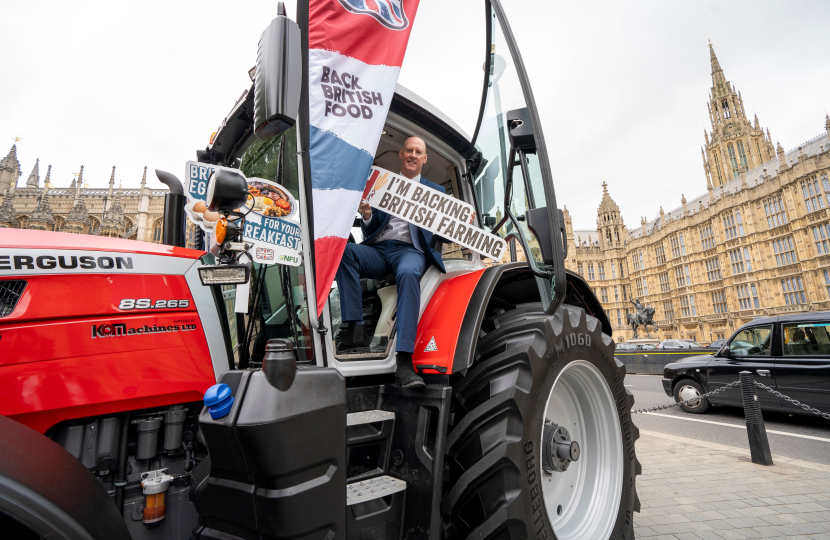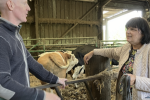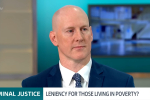
I have spent a lot of my time getting out and about in the constituency since being elected as MP for Bexhill and Battle. I certainly cover some distance on my travels to see people and places as constituency covers around 200 square miles - from Pevensey and Herstmonceux in the west, to Brede, Westfield and Northiam in the east, from Bexhill in the south to Flimwell which the northernmost part of the constituency. Around half of my constituents live in the towns of Bexhill and Battle but the remainder live in rural areas and villages. Around 90% of the constituency is either in the High Weald Area of Outstanding Natural Beauty (AONB) or a Site of Special Scientific Interest (SSSI) such as the Pevensey levels. Rural issues, agricultural and the environment are therefore very important to the constituency.
Supporting our local farmers and protecting the rural environment is an important part of my job. Having met the National Farmers Union (NFU) at Parliament in September on ‘Back British Farming Day’, I then organised to meet with local members of the NFU at a dairy farm in Herstmonceux to learn more about the challenges local farmers face. I was keen to know how I can support them and work with them to ensure that government funding and regulation supports them to produce food as well as looking after the environment.
Since leaving the EU, we can now decide ourselves how we support farmers in this country instead of using a scheme that was mainly designed with French farmers in mind . We are moving away from payments, largely based on the area of land farmed, towards a new focus on providing public goods, such as environmental and animal health improvements. I was interested to learn from the farmers whether the new funding schemes have now got the balance right between environmental land management and supporting food production.
The UK currently produces 62% of the food it consumes. This is considered a relatively stable figure according to the national Food Security Index but recent global events, such as Covid 19 and the war in Ukraine, have demonstrated that the UK’s reliance on global markets for food and energy make us particularly vulnerable to the risk of food price inflation. This year, farmers and growers have also experienced some of the wettest winters and springs on record and this has put great pressure on food production. Events which impact the UK’s food security and make it challenging for people to access sufficient healthy and safe food means it’s very important that the UK government supports our farmers and food producers to make sure we remain resilient.
It was therefore very helpful to meet local farmers to hear about the challenges and opportunities they face. It was clear that they are as passionate about food production as they are about ensuring biodiversity and careful land management. The impression I was left with was that, at the moment, the balance probably isn’t quite right – that it is putting farmers off from farming the land in favour of letting it rewild. I will continue to work with local farmers and the NFU to ensure that the UK’s farm subsidy schemes work for their businesses and that the focus of farming remains about producing home grown food and ensuring UK food security.


